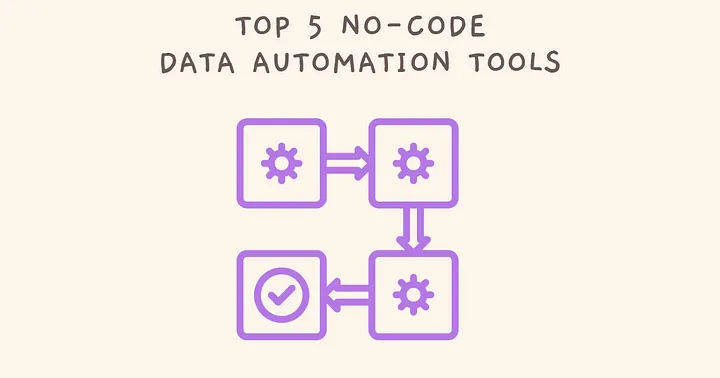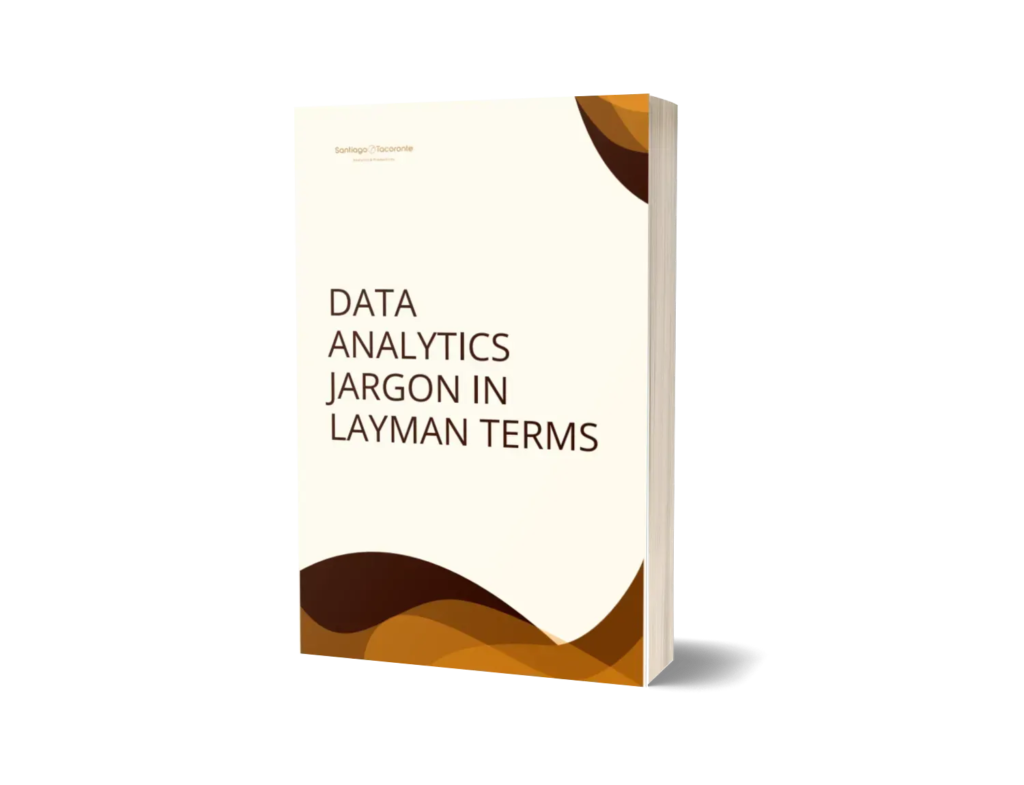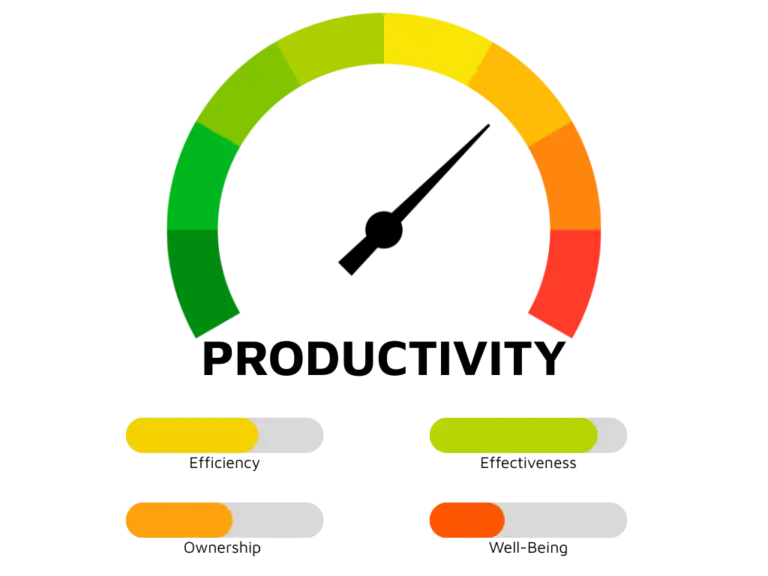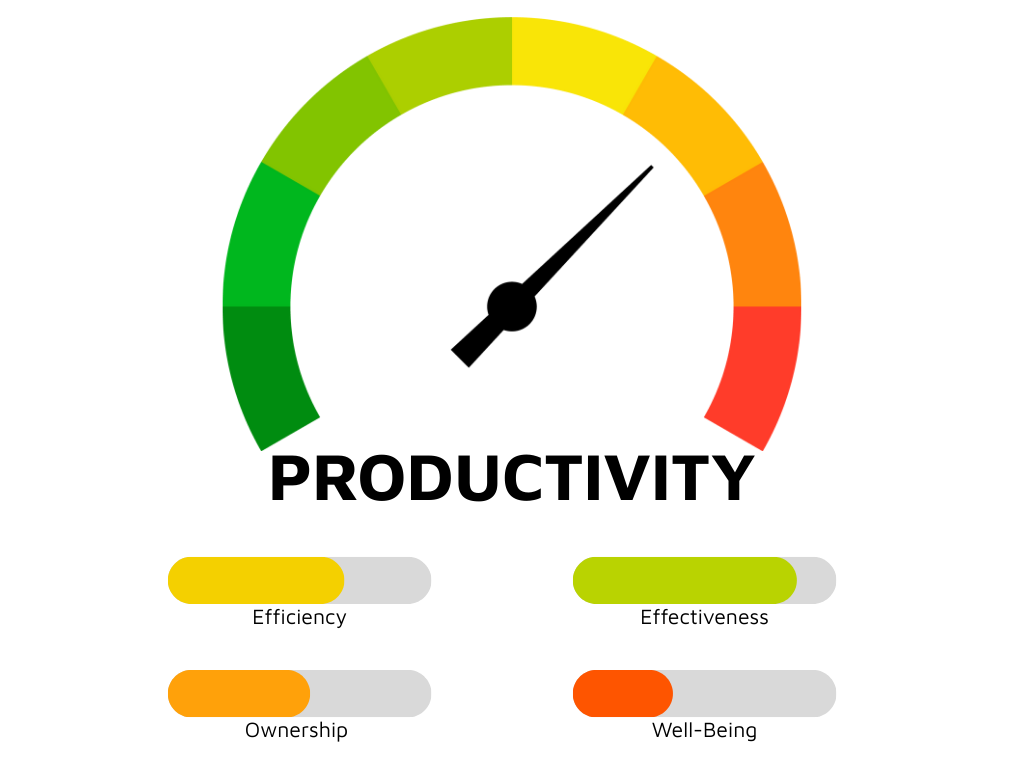Data automation is the process of automating data collection, processing, and analysis. It’s a process that can streamline business operations and make it easier to extract insights from data without manual intervention. There are several data automation tools in the market, each with its own features and capabilities.
Businesses today face an overwhelming volume of data from multiple sources. Processing this information manually is not only time-consuming but also error-prone, which can compromise decision-making. Data automation tools solve this problem by handling repetitive tasks, allowing teams to focus on strategic work rather than data entry.
The market for data automation tools has grown substantially in recent years. Organizations across industries are adopting these solutions to improve efficiency and reduce operational costs. From small businesses to large enterprises, the need for automated data workflows has become critical for maintaining a competitive advantage.
This blog post will explore the top 5 data automation tools on the market and what sets them apart. We’ll examine their features, pricing, and ideal use cases to help you determine which solution fits your needs.
What are Data Automation Tools
A data automation tool is software that automates data collection, cleaning, and normalization. It helps organizations focus on their core competencies and business processes by reducing the time and effort required to manually gather and prepare data.
These tools work by connecting to various data sources, extracting information, transforming it according to predefined rules, and loading it into target systems. This process, often referred to as ETL (Extract, Transform, Load), forms the backbone of modern data operations. However, contemporary data automation tools go beyond basic ETL by incorporating advanced features like machine learning, natural language processing, and predictive analytics.
Data automation tools can collect data from various sources, including websites, social media platforms, databases, files, and sensors. Once collected, the data can be automatically cleaned using multiple methods, such as filtering for duplicates or identifying outliers. Finally, the data can be normalized to ensure consistency across sources.
The cleaning process is particularly valuable because raw data often contains inconsistencies, missing values, and formatting issues. Manual data cleaning can consume up to 80% of a data analyst’s time. Data automation tools reduce this burden significantly by applying consistent rules and validation checks.
Many different types of data automation tools are available on the market, each with its advantages and disadvantages. Some popular data automation tools include Alteryx, Knime, Parabola, Trifacta, and Dataiku. The choice between these platforms depends on factors like technical expertise, budget, scalability requirements, and specific use cases.
Why are Data Automation Tools essential for a Business?
To make sound decisions, businesses need access to accurate and up-to-date data. Data automation tools can help by automatically collecting and organizing data from various sources. This can save businesses significant time and money that would otherwise be spent on manual data entry and analysis.
Consider the typical scenario: a marketing team needs to compile weekly reports from Google Analytics, social media platforms, CRM systems, and email marketing tools. Without automation, this process might take several hours each week. Data automation tools can complete the same task in minutes, freeing up time for analysis and strategy development.
The financial impact is substantial. Organizations that implement data automation tools typically see a return on investment within the first year, driven by reduced labor costs and faster decision-making. More importantly, automated data processes minimize human error, which can have costly consequences in areas such as financial reporting and compliance.

Data automation tools can also help businesses track customer interactions, supplier performance, financial data, and other key information. This data can be used to improve operations, develop better products and services, and understand customer needs. In short, data automation tools are essential for any business seeking to remain competitive in today’s market.
The ability to track metrics in real-time provides another significant advantage. Instead of waiting for monthly reports, teams can monitor performance continuously and respond to issues immediately. This agility is particularly valuable in fast-moving industries, where delays in responding to market changes can lead to lost opportunities.
Furthermore, data automation tools enable better collaboration across departments. When everyone has access to the same accurate, up-to-date information, silos break down and cross-functional teams can work more effectively. This improved collaboration often leads to innovation and better business outcomes.
Alteryx
Alteryx is one of the most popular data automation tools on the market. It offers a wide range of features and capabilities, making it an excellent choice for medium- to large-sized businesses.
Some of the critical features of Alteryx include:
- Data Wrangling: Alteryx offers several powerful tools for data manipulation, including cleaning up datasets, removing invalid or duplicate records, handling missing values, joining tables, pivoting data, and calculating new fields. The platform provides over 300 prebuilt tools covering everything from basic data blending to complex spatial analytics.
- Advanced Analytics: Alteryx provides capabilities for predictive modeling and statistical analysis. This enables the extraction of valuable insights from data that would otherwise be difficult to analyze. The platform integrates with R and Python, allowing data scientists to leverage their existing code while benefiting from Alteryx’s workflow automation.
- Collaboration Features: Alteryx Server enables teams to share workflows, schedule automated runs, and centrally manage data automation projects. This makes it easier for organizations to scale their data automation efforts across multiple departments and users.

Overall, Alteryx is a powerful tool that can save businesses time and effort when dealing with data. While the marketing claims it’s designed for businesses of all sizes, the pricing structure makes it better suited to medium- to large-sized enterprises with substantial data automation needs.
The learning curve for Alteryx is moderate. Users familiar with data concepts can typically become productive within a few weeks. The company offers extensive training resources, including Alteryx Academy, which provides free courses and certifications. The active user community is another valuable resource for troubleshooting and learning best practices.
One limitation to consider is that Alteryx workflows can become resource-intensive when processing massive datasets. Organizations working with big data may need to invest in additional infrastructure or consider cloud-based execution options.
Cost
The pricing for the designer version of Alteryx starts at $5,500 per user per year. They offer a 30-day free trial that lets you try all their products.
This pricing positions Alteryx as a premium solution in the data automation tools market. For organizations with multiple users, the costs can add up quickly. However, companies that fully leverage the platform’s capabilities often find the investment worthwhile due to productivity gains and improved data quality.
Alteryx also offers Server and Cloud editions with different pricing models based on capacity and features. Enterprise customers typically negotiate custom pricing based on their specific requirements and user counts.
KNIME
KNIME is a powerful data automation tool that offers a wide range of features. It has an easy-to-use graphical user interface that makes it quick and easy to get started with data manipulation.
KNIME stands for Konstanz Information Miner and originated from a research project at the University of Konstanz in Germany. The platform has evolved into a robust open-source solution with a strong following in the data science community. What sets KNIME apart is its modular approach, in which users build workflows by connecting nodes representing different data operations.
The platform supports over 2,000 modules and integrations, covering everything from basic data manipulation to advanced machine learning algorithms. KNIME’s extensibility is one of its strongest features, enabling users to add custom functionality in Python, R, Java, and other languages.
KNIME is a platform that can run as SaaS or locally on your computer. This flexibility gives organizations control over where their data resides, which is essential for companies with strict data governance requirements. The local execution option also lets you use data automation tools without an internet connection.
Cost
KNIME is free to use on your laptop and allows you to run manual workflows. However, the paid version starts at $250 per month.
The free tier of the KNIME Analytics Platform is fully featured, not a limited trial (desktop version). This makes it an excellent option for individuals, students, and small teams who want to explore data automation tools without financial commitment. The open-source nature also means there’s no vendor lock-in, and you can switch to paid tiers only when you need enterprise features like workflow scheduling, collaboration tools, or dedicated support.
The paid KNIME Business Hub (Cloud) adds capabilities for team collaboration, workflow automation, and centralized deployment. For organizations that need these features, pricing is competitive with other enterprise data automation tools. KNIME also offers academic licenses at reduced rates for educational institutions.
Parabola
Parabola is an online data automation tool that offers a wide range of features. It has an easy-to-use graphical user interface that makes it quick and easy to get started with data manipulation. However, its lack of wrangling tools can be a limiting factor.
Parabola targets operations teams, marketers, and other business users who need to automate repetitive tasks without learning to code. The platform excels at connecting various business applications and moving data between them. For example, you might pull data from Shopify, enrich it with information from Google Sheets, and push the results to Salesforce.
The visual flow builder is intuitive, with a drag-and-drop interface that clearly shows how data moves through each step. This transparency makes it easy to troubleshoot issues and understand what your automation is doing. Parabola also includes scheduling capabilities that enable workflows to run automatically at specified intervals.
Parabola is a SaaS platform with multiple native connectors to other apps, including popular tools such as Airtable, Google Sheets, Salesforce, and e-commerce platforms. The connector library continues to expand, though it may not cover every niche application. For systems without native connectors, Parabola offers API and webhook integrations.
Cost
There is a free version with limited functionalities, and the paid plans start at $80 per month.
The free tier allows you to create unlimited flows but limits the number of rows you can process and the frequency of scheduled runs. This is sufficient to test the platform and run small-scale automations. The paid tiers remove these limitations and add features like priority support and advanced connectors.
Parabola’s pricing is transparent and scales with usage, making it predictable for budgeting. The entry-level pricing makes it accessible to small businesses and individual users, positioning it as one of the more affordable data automation tools for teams just starting their automation journey.
Trifacta
Trifacta is a data automation tool that enables users to clean, prepare, and transform their data more efficiently and effectively. With Trifacta’s intuitive interface and robust features, users can easily manipulate data to get the insights they need. As a result, Trifacta is trusted by leading organizations, including Microsoft, Google, and Amazon.
Integration with Other Tools
Trifacta works well within broader data ecosystems. It can read from and write to data lakes, data warehouses, and business intelligence tools. The platform supports scheduling and automation through its API, allowing you to integrate data preparation workflows into larger data pipelines.
The tool includes connectors to popular data sources such as Salesforce, SAP, Oracle, and various file storage systems. This broad connectivity makes it easier to build comprehensive data preparation workflows that span multiple systems.
Cost
Trifacta licenses start at $80/month, while the more advanced plans start at $4,950.
The entry-level pricing makes Trifacta accessible for small teams, though the feature set at this tier is limited. The professional and enterprise tiers include advanced capabilities like collaboration features, integration with enterprise data platforms, and dedicated support. The significant price jump between tiers reflects the difference in capabilities and scale.
Trifacta’s pricing model has evolved to offer both subscription and consumption-based pricing, depending on the deployment model. Organizations using cloud data warehouses may find the consumption-based model more economical for variable workloads. Enterprise customers typically work with sales teams to determine the most cost-effective licensing approach based on their specific usage patterns.
The platform offers a free trial period, which is valuable for assessing whether Trifacta’s data preparation approach fits your team’s workflow. Following Alteryx’s acquisition, organizations interested in both platforms may have bundling options.
Dataiku
Dataiku is a powerful data automation tool that enables businesses to quickly and efficiently process large amounts of data. The software provides a user-friendly interface that makes it easy to load, transform, and analyze data. Additionally, Dataiku offers a range of features that make it an ideal tool for enterprises seeking to streamline their data processing workflows without coding.

For organizations serious about building a data-driven culture, Dataiku provides the tools and capabilities needed to scale analytics across the enterprise. The platform works best for medium to large companies with dedicated data teams and complex analytical requirements.
Dataiku positions itself as an end-to-end platform for data science and machine learning, going beyond traditional data automation tools. The platform supports the entire data lifecycle, from preparation and exploration to model building, deployment, and monitoring. This comprehensive approach makes it attractive for organizations looking to consolidate multiple tools into a single platform.
One of Dataiku’s strengths is its ability to accommodate users with varying levels of technical skill. Business analysts can use the visual interface to build data pipelines, while data scientists can write code in Python, R, SQL, or other languages. This flexibility allows teams with mixed skill levels to collaborate on the same projects.
Dataiku includes strong governance and collaboration features, with project versioning, role-based access controls, and audit trails. These capabilities are significant for regulated industries that require data lineage and compliance documentation. The platform also offers AutoML capabilities that can automatically build and compare multiple machine learning models.
For teams looking to enhance collaboration, understanding <a href=” https://santiagotacoronte.com/5-easy-asynchronous-communication-methods-to-multiply-productivity-and-free-up-so-much-time/”>asynchronous communication methods</a> can complement your data automation strategy.
Cost
Dataiku offers a free plan. Online licenses start at $499/month.
Which one is the Best?
There are many data automation tools on the market, and choosing the right one for your needs can take time.
The decision should be based on several factors: your team’s technical capabilities, budget constraints, the complexity of your data workflows, and integration requirements with existing systems. There’s no universally “best” tool, only the best tool for your specific situation.
Consider starting with a clear assessment of your needs. Which data sources do you need to connect to? What transformations are most common in your workflows? How many users will need access? What’s your budget? Answering these questions will help narrow your options among the available data automation tools.
1. Best for Individuals and solopreneurs: Parabola
Parabola is an excellent data automation tool for individuals who need to automate simple tasks. It has an easy-to-use interface and supports multiple data sources.
The low entry price and minimal learning curve make Parabola ideal for solopreneurs seeking quick wins from data automation. If you’re running an e-commerce business, managing social media campaigns, or handling customer data across multiple platforms, Parabola can eliminate hours of manual work each week. The visual interface means you can build and modify workflows without technical assistance.
2. Best for Small Businesses: Knime
KNIME is a powerful data automation tool suitable for small or mid-sized businesses. It has many features, including data cleansing, transformation, and mining. KNIME also allows you to create custom workflows.
The free tier makes KNIME particularly attractive for small businesses with limited budgets. You can start with the open-source version and scale up to paid tiers as your needs grow. The large community means you’ll find plenty of examples, extensions, and support without paying for premium assistance. For businesses with some technical capability, KNIME offers an excellent balance of power and cost-effectiveness among data automation tools.
3. Best for Enterprises: Alteryx
Alteryx is a robust data automation tool that is suitable for enterprises. It offers many features, including data cleansing, transformation, integration, and predictive analytics. Alteryx also has strong community support.
For large organizations with complex data environments and substantial budgets, Alteryx provides the scalability and enterprise features needed to support hundreds or thousands of users. The platform’s governance capabilities, integration options, and performance optimization features justify the premium pricing for companies where data automation is a critical business function. The extensive training resources and partner ecosystem also provide valuable support for enterprise deployments.
Conclusion
Data automation tools are the Swiss Army Knife of data operations. They help eliminate tedious, manual tasks that reduce business efficiency. They are helpful for organizations that handle large volumes of data and perform manual processes.
The right data automation tool can transform how your organization handles information. By reducing manual work, improving data quality, and enabling faster decision-making, these platforms deliver measurable value. The key is choosing a solution that matches your team’s capabilities and grows with your needs. Evaluate them against your specific requirements, take advantage of free trials, and select the option that best supports your organization’s data goals.
Implementation success depends on more than just selecting the right tool. You need to invest time in training, establish clear data governance policies, and continuously optimize your workflows. Start small with high-impact use cases that demonstrate value quickly, then expand your automation efforts based on lessons learned.
The data automation tools market continues to evolve rapidly, with new features and capabilities emerging regularly. Stay informed about updates to your chosen platform and be prepared to build a modular architecture that allows you to replace data automation tools as needed with minimalinvestment.






